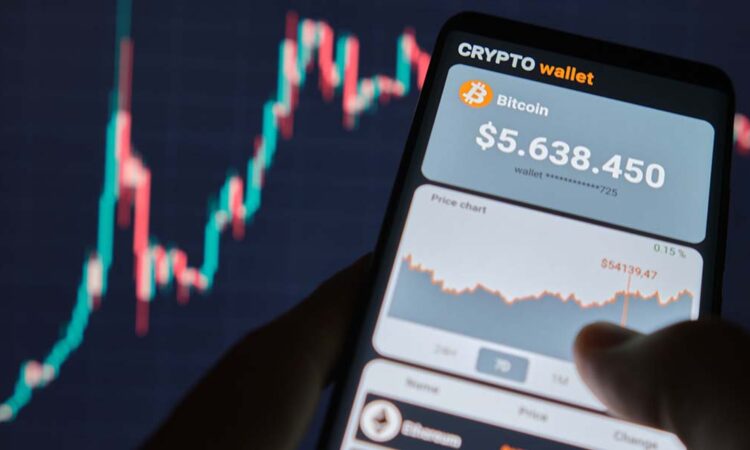
Maine
As of Oct. 18, 2021, “virtual currency” is explicitly included in Maine’s definition of money transmission, 32 MRSA §6102(10).
Maryland
As of October 1, 2021, the definition of “money transmission” in Md. Code, Fin. Inst. § 12-401(n)(1) includes “receiving…other value that substitutes for currency” (“currency” having the definition under 31 C.F.R. § 1010.100(m) as fiat currency) and transmitting it.
According to guidance on the Maryland Office of the Commissioner of Financial Regulation website , “an administrator or exchanger that accepts and transmits a convertible virtual currency or buys or sells convertible virtual currency for any reason is a money transmitter under federal regulations.” The Office also states on its regulated industries page that its regulation of money transmission is “including transmission of virtual currency.”
Digital currency businesses such as Binance and Coinbase currently maintain Maryland money transmitter licenses.
Massachusetts
Massachusetts’s regulation of money transmission is only money transmission to foreign countries. See 209 CMR 45.02; Mass.gov, “Apply for a Money Transmitter License“ .
In a 2020 opinion letter, the Massachusetts Department of Banking found that transactions where fiat currency was exchanged for virtual currency between two parties across international borders, without more, was not money transmission requiring licensure. See Division of Banks, Opinion 19-008 (Jan. 17, 2020). A digital wallet service was also found, on its facts, not to require a license. See Division of Banks, Opinion 20-003 (May 22, 2020).
Selected Department of Banking opinion letters on virtual currency can be found on the Department’s website.
Michigan
MCL 487.1003(c) defines “money transmission” as “selling or issuing payment instruments or stored value devices or receiving money or monetary value for transmission.” Michigan’s Department of Insurance and Financial Services FAQs states that holding funds in an “e-wallet” is money transmission requiring a license. 2019 guidance for consumers and industry states that if federal regulators would require an “administrator or exchanger” to get a money transmission license, one is required under Michigan law.
Virtual currency exchanges such as Binance and Coinbase maintain Michigan money transmission licenses.
Minnesota
Money transmission under Minn. Stat. § 53B.03 is defined as, “selling or issuing payment instruments or engaging in the business of receiving money for transmission or transmitting money .” Licenses are required for “businesses that cash checks, transmit money, own and operate ATMs, and provide electronic funds transfers,” according to the Minnesota Commerce Department .
Some virtual currency exchanges such as Binance and Coinbase maintain Minnesota money transmission licenses.
Mississippi
Miss. Code § 75-15-3(f) defines “monetary value” as “a medium of exchange, whether or not redeemable in money,” and Miss. Code § 75-15-3(g) defines “money transmission” to include receiving monetary value for transmission.
Some virtual currency exchanges such as Binance and Coinbase maintain Mississippi money transmission licenses.
Missouri
Missouri’s “Sale of Checks” law defines a “check” as “any electronic means of transmitting or paying money.” Mo. Rev. Stat. § 361.700(2)(1).
Some virtual currency exchanges such as Binance maintain Missouri Sale of Checks licenses.
Nebraska
Nebraska’s money transmission law defines “monetary value” as “a medium of exchange, whether or not redeemable in money,” Neb. Rev. Stat. § 8-2715, and therefore encompasses digital currency.
Effective Oct. 1, 2022, state-chartered “digital asset depository institutions” have the same exemption from money transmission registration as other banks. Neb. Rev. Stat. § 8-2724.
Slot machines and other “mechanical amusement cash devices” may only accept fiat currency or vouchers for same; virtual currency is specifically prohibited. 316 NAC 54-102.05B(5).
Nevada
The definition of “check” in NRS § 671.010(1) includes any “instrument used for the transmission or payment of money,” and a license is required for “selling or issuing checks” or “receiving for transmission or transmitting money or credits.” NRS § 671.040(1).
The Financial Institutions Division released a “statement on regulation of cryptocurrency in Nevada“ stating that whether a business is a money transmitter is determined on a case-by-case basis; however, “any entity that facilitates the transmission of or holds fiat or digital currency by way of brick-and-mortar, kiosk, mobile, internet or any other means, should contact the NFID to request a licensure determination.”
Nevada also has a sandbox, the “Regulatory Experimentation Program for Product Innovation” NRS §§ 657A.100 to 657A.620
New Jersey
The definition of “payment instrument” in N.J.S.A. 17:15C-2 is broad enough to include virtual currency in New Jeresy’s money transmission licensing scheme. Virtual currency exchanges Binance and Coinbase both maintain New Jersey money transmitter licenses.
Oklahoma
The definition of “money transmitter” in 6 O.S. § 1512(7) includes any transmission of funds across an electronic network. Many virtual currency exchanges maintain Oklahoma money transmission licenses.
Oregon
In the Oregon money transmitter laws, ORS 717.200(10)(b) defines “money” as a medium of exchange that “represents value that substitutes for currency.” Oregon licenses digital currency exchanges as money transmitters.
Pennsylvania
Although 7 P.S. § 6101 defines “money” as a “product that is generally recognized as a medium of exchange” and a “transmittal instrument” to include “electronic transfer,” the Pennsylvania Department of Banking and Securities issued guidance holding that only fiat currency is “money” and virtual currency trading platforms are exempt.



